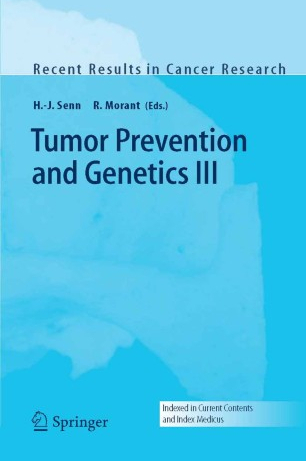
Tumor Prevention and Genetics III
Publication year: 2005
: 978-3-540-26980-9
Identification of cancer risk factors and potential prevention strategies have been some of the most important medical and research contributions to the improvement of public health in the past half-century (Steele 2003). Understanding the role of lifestyle, exposure to endogenous factors and exogenous environmental factors, and individual genetic and epigenetic variability have contributed significantly to this effort. Cancer prevention strategies have been developed based on results of epidemiologic, preclinical, and clinical studies that have generated clues for identifying risk factors that may be modulated by changes in lifestyle, such as smoking cessation or dietary modification (Greenwald 2002a). In addition, significant progress in medical interventions involving chemoprevention—a pharmacological approach to intervention that aims to prevent, arrest, or reverse either the initiation phase of carcinogenesis or the progression of premalignant cells—is beginning to pay dividends in reducing risks associated with cancer.
: Medicine, Breast Cancer, Cancer Epidemiology, Cancer Prevention, Carcinom, Colon Cancer, Early Detection, Prostate Cancer, Tumor Genetics, Tumor Prevention, genetics